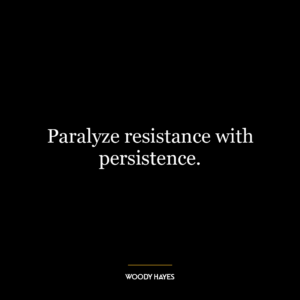They may outsmart me, or be luckier, but they can’t outwork me.
This quote emphasizes the power of hard work and the control we have over our own efforts, as opposed to relying on intelligence or luck. It suggests that while others may be more intelligent or fortunate, they cannot surpass the level of dedication and effort one is willing to put into their work. This is a strong statement about the value of perseverance and diligence, and the belief that these traits can overcome any natural talent or luck.
One interpretation of the quote is that it underscores the importance of having a strong work ethic. It implies that even if someone is smarter or luckier, they will not be able to outperform someone who is willing to work harder. This perspective emphasizes the value of effort and persistence over natural talent or good fortune. It suggests that success is not necessarily about having the best ideas or the most luck, but about being willing to put in the time and effort to make those ideas a reality.
In the context of today’s world, this quote could be applied in various scenarios, such as in the workplace, in academics, or in personal development. In the workplace, for instance, someone might not be the most intelligent or lucky employee, but they could still excel by putting in more effort and dedication than their colleagues. Similarly, in academics, a student might not be the most naturally gifted, but they could achieve great results by studying harder and more consistently than their peers.
In terms of personal development, this quote underscores the importance of self-discipline, perseverance, and hard work in achieving one’s goals. It suggests that regardless of one’s natural abilities or circumstances, success is ultimately determined by one’s willingness to put in the necessary work. This idea could be empowering for people, as it implies that they have control over their own success and that they can achieve their goals through hard work and dedication, even if they are not the most intelligent or fortunate.















